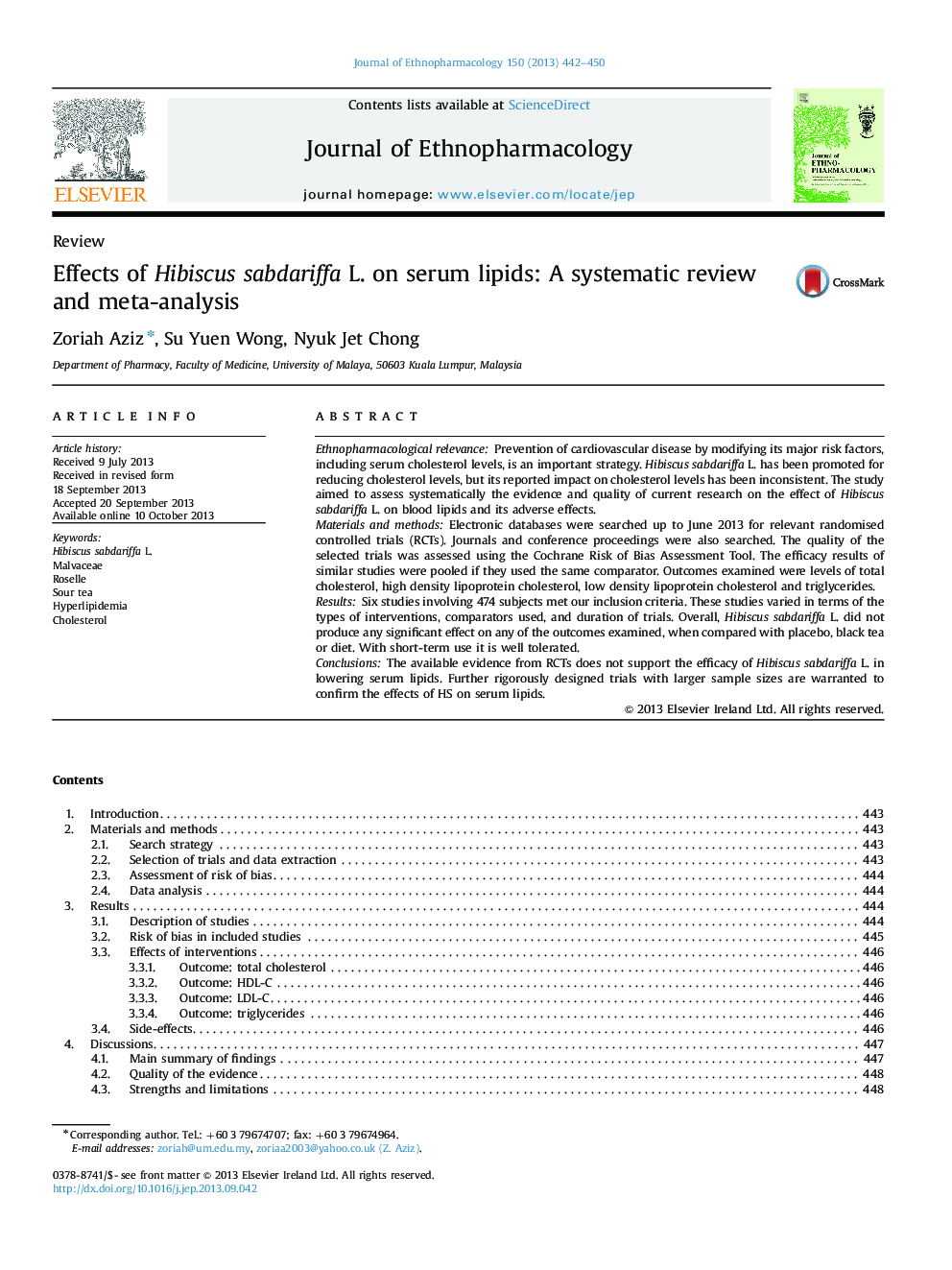| Article ID | Journal | Published Year | Pages | File Type |
|---|---|---|---|---|
| 2545428 | Journal of Ethnopharmacology | 2013 | 9 Pages |
Ethnopharmacological relevancePrevention of cardiovascular disease by modifying its major risk factors, including serum cholesterol levels, is an important strategy. Hibiscus sabdariffa L. has been promoted for reducing cholesterol levels, but its reported impact on cholesterol levels has been inconsistent. The study aimed to assess systematically the evidence and quality of current research on the effect of Hibiscus sabdariffa L. on blood lipids and its adverse effects.Materials and methodsElectronic databases were searched up to June 2013 for relevant randomised controlled trials (RCTs). Journals and conference proceedings were also searched. The quality of the selected trials was assessed using the Cochrane Risk of Bias Assessment Tool. The efficacy results of similar studies were pooled if they used the same comparator. Outcomes examined were levels of total cholesterol, high density lipoprotein cholesterol, low density lipoprotein cholesterol and triglycerides.ResultsSix studies involving 474 subjects met our inclusion criteria. These studies varied in terms of the types of interventions, comparators used, and duration of trials. Overall, Hibiscus sabdariffa L. did not produce any significant effect on any of the outcomes examined, when compared with placebo, black tea or diet. With short-term use it is well tolerated.ConclusionsThe available evidence from RCTs does not support the efficacy of Hibiscus sabdariffa L. in lowering serum lipids. Further rigorously designed trials with larger sample sizes are warranted to confirm the effects of HS on serum lipids.
graphical abstractFigure optionsDownload full-size imageDownload high-quality image (207 K)Download as PowerPoint slide
